|
11/19/2020 Fratelli Tutti: On Fraternity and Social Friendship - Top Quotes from Pope Francis' Latest EncyclicalRead NowOn the vigil of the Feast of St. Francis of Assisi, the saint who influenced the choosing of Pope Francis’s papal name, Pope Francis released the encyclical Fratelli Tutti on fraternity and social friendship. Beginning with the example of St. Francis himself and continuing with the parable of the Good Samaritan, Pope Francis calls the world once again to consider the common good and to strive for unity based on fraternal charity. In doing so, he reminds humanity of an important truth: that we belong to one another. In this blog series, I’ll be sharing some of my favorite quotes from the pope’s latest encyclical. May they bring you peace, hope, and joy as we continue to grow and adapt in the midst of the COVID-19 pandemic and its effects on our world. “Let us dream, then, as a single human family, as fellow travelers sharing the same flesh, as children of the same earth which is our common home, each of us bringing the richness of his or her beliefs and convictions, each of us with his or her own voice, brothers and sisters all” (FT, 8) Today I believe that many of us have forgotten to dream. We are mired down with anxiety, isolation, pandemic fatigue, stress, financial and political uncertainty, or disillusionment. In Fratelli Tutti, Pope Francis reminds us to dream and to hope. There is room for each person at God’s table. Each person brings their own gifts, talents, knowledge, expertise, experiences, and self to the world. Rather than reject our differences, it is important to acknowledge and even celebrate the richness in our human diversity. We are many parts, but one body. Let us celebrate our humanity and practice dreaming once again—of unity, of peace, of justice, of truth, of love. “Instances of racism continue to shame us, for they show that our supposed social progress is not as real or definitive as we think” (FT, 20). As several incidents within the United States have reminded our nation once more, racism is a sin which directly contradicts the truth that all people are born with equal dignity in the image and likeness of God. The sin of racism continues to be present in our world, and eliminating it involves the intentional work and learning of each person. This process includes listening to other’s stories and journeys, learning about and from history, conducting a personal examination of conscience, and intentional action to change systems and structures of racism. Pope Francis reminds us that racism is intolerable, not only among Catholics, but among mankind as a whole. “True, a worldwide tragedy like the Covid-19 pandemic momentarily revived the sense that we are a global community, all in the same boat, where one person’s problems are the problems of all. Once more we realized that no one is saved alone; we can only be saved together” (FT, 32) Although the COVID-19 pandemic has wrought havoc on the way we live, times of hardship also remind us of what’s important. Often, we re-focus on our priorities because we are reminded not to take them for granted. Many turn to faith, family, and community and are more likely to help those who are less fortunate. Practicing gratitude is an essential component of not only surviving but thriving in times of hardship. Pope Francis points out that tragedies such as COVID-19 can bring humanity together in a common bond of fraternity. Let us turn outward during this time and use our talents and resources to bring joy, love, and hope to others. “We have the space we need for co-responsibility in creating and putting into place new processes and changes. Let us take an active part in renewing and supporting our troubled societies. Today we have a great opportunity to express our innate sense of fraternity, to be Good Samaritans who bear the pain of other people’s troubles rather than fomenting greater hatred and resentment” (FT, 77) Co-responsibility is an important theme at the Catholic Apostolate Center that has been given even greater attention in the Church today. It involves collaboration from the beginning and values the important contributions each person brings to the Church and world. St. Vincent Pallotti, patron of the Catholic Apostolate Center, understood that the Church cannot thrive and spread the Gospel without the active participation of the clergy, religious, and laity. Today, Pope Francis reminds us that we all have a role to play in the renewal of the Church and world. This begins when we can accompany our brothers and sisters, stand in solidarity with those who are hurting, and bring them the joy of the Gospel. “Solidarity finds concrete expression in service, which can take a variety of forms in an effort to care for others” (FT, 115) Charity comes alive in works, just as St. Paul says, “faith without works is dead.” The Gospel is lived today through our actions—an understanding promoted in Catholic Social Teaching and exemplified through the corporal and spiritual works of mercy. It is one thing to express solidarity with our brothers and sisters, but a very different thing to walk alongside and serve them. Pope Francis is calling us to both. As we are reminded in Gaudium et Spes, “Man…cannot fully find himself except through a sincere gift of himself” (24). “Nor can we fail to mention that seeking and pursuing the good of others and of the entire human family also implies helping individuals and societies to mature in the moral values that foster integral human development...Even more, it suggests a striving for excellence and what is best for others, their growth in maturity and health, the cultivation of values and not simply material wellbeing. A similar expression exists in Latin: benevolentia. This is an attitude that ‘wills the good’ of others; it bespeaks a yearning for goodness, an inclination towards all that is fine and excellent, a desire to fill the lives of others with what is beautiful, sublime and edifying” (FT, 112) In the Christian worldview, politics, economics, culture and society must be built and exist for the common good. They are man-made structures designed to serve this purpose. In pursuing the common good, we aim to create a society in which mankind can flourish as a result of respect for every person’s inherent dignity. As St. Thomas Aquinas stated, “Love wills the good of the other.” Pope Francis echoes this truth and reminds us that willing this good is comprehensive: we must care about one another’s spiritual well-being as well as our physical well-being. When man’s fundamental needs are met—when he is cherished, nurtured, respected, fed, and rested—he is better able to “fill the lives of others with what is beautiful, sublime and edifying.” He is able to reach out and better experience and rest in the divine. To learn more about Fratelli Tutti, please click here.
0 Comments
One of the things I love about Catholicism is that we celebrate the mysteries of our faith in a physical way. Going to Mass, kneeling, standing, singing, receiving the Eucharist, hearing and proclaiming the Word of God, experiencing community after Mass or at parish events. Some of our liturgical feast days even emphasize the physical contact between us and the Divine. Think of reverencing the wood of the Cross on Good Friday or participating in a Eucharistic procession on Corpus Christi. Our faith is incarnational, and our bodies are important conduits for worship. That’s part of the reason the last several months have been so difficult for so many. These physical elements of worship have been—largely—unavailable to us because of COVID-19 and the practice of physical and social distancing. Most of us have also been physically disconnected from our communities of faith, friends, and family. We’ve missed important events like birthdays, retirement parties, and even funerals. The emotional, spiritual, and psychological effects of this separation are very real and very serious. And it’s been clear from the outset of this pandemic that the Church must take action to alleviate the impact of isolation, despair, and loneliness caused by this pandemic. But who will lead the charge? I find myself asking, what is the Church going to do about it? How will we get through this? And then I realize, the Spirit is calling me. And, friends, the Spirit is calling you too. We’re not being called to wait around while someone else figures it out. God is calling us to figure this out together. We must remember that we are the Church on earth, and we are being invited by the Spirit to cooperate with God’s grace to take action and serve others, right now. We can’t simply wait for someone else to help. Those of us who are baptized are called to be missionary disciples and, ultimately, saints. And this call comes with a personal responsibility to recognize that all our lives are interwoven as branches grafted onto the Vine, as various parts of one Body (1 Corinthians 12). We are connected to one another through our baptism into Christ. Paul says, “The body is not a single part, but many.” And because of this interconnectedness, when one part suffers, the whole body suffers. So, we’ve got to do something about that, because we’re called to be “doers”. We are all suffering in some way during this pandemic. It’s not even possible to downplay that. And we all feel one another’s burdens. We especially feel our personal stresses and anxieties, day in and day out. I believe one of the answers to this anxiety and suffering is the beautiful work of spiritual accompaniment. The call to spiritual accompaniment is incarnational and based on the love of Christ. Spiritual accompaniment urges us out of our own interior world and presses us to walk with our brother or sister in whatever situation they might find themselves. Pope Benedict XVI says that God’s love for humanity is so strong that “it turns God against himself, his love against his justice” (Deus Caritas Est, 10). How, then, can we demonstrate a reflection of this great, personal love to one another if we can’t be physically present to one another? I believe we must be creative and find ways to communicate our companionship to one another in meaningful ways. We can allow ourselves to be challenged by these questions while we reflect on this topic: Do I have the ability to be present to my suffering neighbor in any way today? Do I have the capacity to do charitable spiritual accompaniment during this pandemic? I believe one effective way to spiritually accompany others as we remain physically distant is to ask challenging questions of others and engage in honest conversation. Though this may seem simple, “faith sharing” is a powerful way to be witnesses of God’s presence, and we all need to be reminded of God’s presence these days. I think there are two simple, penetrating questions that can start fantastic spiritual conversations that open our eyes to the great works of God. They are:
The answers to both of these questions reveal our hearts, our spiritual yearnings, our joys, and our sorrows; the answers to both of these questions lead us to recognize God’s presence among us, either by contemplating where we’ve seen God or petitioning His aid through prayer. I want to challenge you to invite a friend or someone you’re close with to consider these questions and then to hear their answers. Perhaps you’ll be surprised at the way the Spirit guides the conversation. I believe that through this simple practice of spiritual accompaniment, we will grow closer with one another, though distance or politics or ideologies may keep us apart. Loving and holy conversation is one way to begin healing the wounds caused over these last several months, and it is one way to accompany one another on the road as we travel strange, new paths together. To learn more about spiritual accompaniment, please click here. For more resources to deepen your faith during COVID-19, please click here.
In high school we had a religion teacher, named Mr. Matthews, who used to tell us not to worry about memorizing anything from his class but these words: “Love God with your whole mind, heart, soul and strength. Love your neighbor as yourself.” He would say, “If you come back and see me twenty years from now, I’ll be happy if those words are all you remember.” Mr. Matthew’s motto was inspired of course by Matthew 22:34-40, which happens to be today’s Gospel reading for the [Optional] Memorial of Saint Louis of France. In this text, Jesus clarifies that love of God and love of neighbor are the two greatest commandments on which everything else depends. To put in another way – without love, we are nothing (1 Corinthians). The pandemic has shown just how much we need this love in our world. And while it may be challenging to connect with one another right now, there are still ways we can share love with others from wherever we happen to be. Three Small Ways of Loving God
Three Small Ways of Loving Neighbor
Remember also, we are called to “love your neighbor as yourself.” During this unique and challenging time, are you taking care of your own spiritual, emotional, and physical needs? If you aren’t sure, it may be worth spending some time today writing down a short list of ways you can practice healthy self-care. If you liked this article, be sure to check out “Living the Corporal and Spiritual Works of Mercy During COVID-19” and “Mental Health and Coronavirus.” “According to a 2018 national survey by Cigna, loneliness levels have reached an all-time high, with nearly half of 20,000 U.S. adults reporting they sometimes or always feel alone. Forty percent of survey participants also reported they sometimes or always feel that their relationships are not meaningful and that they feel isolated.” – American Psychological Association. This is a report from 2019 about the rising levels of social isolation and loneliness experienced in the United States. It is not something new, and as days and years progress, it is likely to get worse if we do not act now. So how does the Catholic Church respond to such increasing levels of isolation? Fortunately, the Church has discussed accompaniment as a solution for a very long time. Most recently, it has been discussed at great length throughout the papacy of Pope Francis and in the recent synod on Young People, the Faith, and Vocational Discernment. As recently as last year, Pope Francis in Christus Vivit talked extensively about the Church’s role in preventing loneliness in young people. Still, as the study above shows, loneliness is not something that only young people experience. Pope Francis talks about the untethering and uprootedness of people in this way: “We need to make all our institutions better equipped to be more welcoming to young people since so many have a real sense of being orphaned. … To all these orphans – including perhaps ourselves – communities like a parish or school should offer possibilities for experiencing openness and love, affirmation, and growth. Many young people today feel that they have inherited the failed dreams of their parents and grandparents, dreams betrayed by injustice, social violence, selfishness, and lack of concern for others. In a word, they feel uprooted.…The experience of discontinuity, uprootedness, and the collapse of fundamental certainties, fostered by today’s media culture, creates a deep sense of orphanhood to which we must respond by creating an attractive and fraternal environment where others can live with a sense of purpose.” (Christus Vivit 216) So what does this mean for our parishes or for us as Catholics? Each one of us is called to accompany others on the journey of faith. Christ himself modeled this with his disciples and has charged us to do the same. Accompaniment is fundamental to Christianity. It means building an “intentional relationship that is oriented toward a definitive direction of growth in holiness and transformation in the Person of Christ.” To begin, I would suggest first taking a look at your immediate circle of connections. Family, friends, co-workers, neighbors, etc. should be your first group to encounter and accompany because they are the people you organically have relationships with each day. These are the people most likely to open up to you if they are experiencing troubles. Even then, it is essential to listen and provide a connection to Christ and the Church community. The role of accompaniment in giving someone a link to the broader Catholic community is vital, and acknowledging every baptized person’s role in this calling is essential. As the Art of Accompaniment: Theological, Spiritual, and Practical Elements of Building a More Relational Church discusses, accompaniment can serve as a powerful avenue to welcome and keep someone in the Church in ever uncertain times and events in someone’s life. It can lead to a deeper connection to Christ, a fuller integration into the world at large, and a more authentic sense of their mission to serve Christ and the Church (Art of Accompaniment, 19). Every day there are more and more people who are experiencing isolation, loneliness, and a sense of not belonging. This has only been exacerbated by the current coronavirus pandemic. Current events, personal circumstances such as their health, and many other factors can contribute to feelings of isolation. During this time, I invite you to pray about different ways you can accompany those who are feeling lonely. The Catholic Church can be a refuge in this storm of isolation and meet people where they are. Even if someone is lonely, as one of God’s children, they are never alone, and it is our job as Catholics to remind them of that fact. For more resources on accompaniment, please click here. For more resources to accompany you during the coronavirus, please click here. Today is the celebration of the Feast of St. Januarius, lovingly known in Italy as St. Gennaro. Januarius was an Italian bishop and martyr who died around the year 305. Not much is known about him other than what has been passed down in tradition, which tells us that the bishop of Benevento died under the Christian persecution of Diocletian along with six companions. After being thrown to wild beasts, who did not attack them, the Christians were beheaded. The accounts and lives of the martyrs always serve to build up the Church. As Tertullian’s saying famously states, "the blood of the martyrs is the seed of the Church." We recall the accounts of martyrs throughout the ages such as Felicity and Perpetua, Joan of Arc, Thomas More, Maximilian Kolbe, Blessed Miguel Pro, Blessed Richard Henkes, S.A.C., and most of the Apostles themselves. How diverse and rich is the witness of the martyrs and saints! In each generation, the martyrs demonstrate heroic faith in a culture of opposition that culminated in the sacrifice of their very lives. In the case of St. Januarius, his witness continues in a special way today as a result of his relics. Not only is his witness of martyrdom powerful, so is the miracle associated with his blood. After Janurius’ beheading, a woman named Eusebia collected the bishop’s blood in a vial. This was brought to Naples and has been venerated for centuries. Most extraordinarily, for the past recorded 400 years starting in 1389, the dried vial of Januarius’ blood liquefies typically on three dates a year: “in the spring during celebrations of the feast of the transfer of the saint’s relics to Naples; Sept. 19, his feast day; and Dec. 16, the local feast commemorating the averting of a threatened eruption of Mount Vesuvius through the intervention of the saint.” Most recently, his blood half-liquefied on a date outside of the normal dates with a visit from Pope Francis in March of 2015. In his typical humble fashion, Pope Francis responded to the applause from the crowd saying, “The bishop said the blood is half liquefied. It means the saint loves us halfway; we must all convert a bit more, so that he would love us more.” Through his words, Pope Francis reminds us that the purpose of miracles is to draw us closer to Christ and to increase our faith. Jesus performed miracles not for spectacle, but for healing and conversion. The miracles of holy men and women continue to this day and serve the same purpose: to inspire profound faith in the ongoing work of God that causes us to strengthen our love of Him in word, action, and service. May they inspire our own faith and lead us closer to the One who modelled perfect martyrdom in charity—Jesus Christ—whose martyrdom we commemorate at every celebration of the Eucharist. Nourished by his Body and Blood, may we emerge from our parishes strengthened to answer persecution with love, hatred with forgiveness, apathy with zeal, ignorance with truth, and selfishness with compassion. In doing so, we will be everyday martyrs—literally, witnesses—proclaiming the Gospel with our lives. St. Januarius, pray for us. As I have gotten older, my favorite part about Lent has become the fact that we have the privilege of willingly walking into the desert - into these 40 days - with our Lord. I think there are a lot of times in our lives when we suddenly find ourselves in the desert - desperate for water, nourishment, or companionship. It is in the desert where we not only grow in intimacy with the Lord, but are also able to be strengthened through real repentance. What is true for us in the deserts of our lives is the same thing that was true for the Prodigal Son in this Sunday’s Gospel: we receive the promise of a Father who receives our repentance with mercy. The story of the Prodigal Son is an important one for us to reflect upon as we continue on our Lenten journeys - it is through repentance that the very son who squandered his inheritance is welcomed back with open arms into the mercy of his father. And the story doesn’t end there: not only does the father embrace and welcome his son back, he rejoices and celebrates his return for those around him to see. It is through our repentance that we experience the mercy of God; it is through our repentance that we receive the promise of the desert of these 40 days. This is so beautifully echoed in all the readings that the Church gives us during this season: God the Father rejoices when we are brought back to life again (Luke 15:32). We as Catholics have the unique privilege of receiving this mercy every time we hear the words of the priest absolving us in the Sacrament of Reconciliation. Our moments of feeling desperate in the desert can be alleviated by honest repentance. After one particularly frustrating time in my life, I remember feeling like the Prodigal Son: convicted that I needed to repent and return to God, but also feeling shame over all the ways that I had squandered what the Lord had given me. And in that moment a priest reminded me that confession is always a place of victory. Like the prodigal son who acknowledged his failures and was welcomed back with mercy and celebration, we too find an outpouring of mercy and grace when we reconcile ourselves to God. As we journey towards Calvary, we do so knowing that our repentance leads to an encounter of mercy and ultimately to victory. Questions for Reflection: What are some moments in your life when you’ve encountered the mercy of God and others? How did these moments affect you? For more resources to accompany you in your Lenten journey, please click here. World Youth Day (WYD) is so much more than an international get-together with the pope. Too often, global experiences of faith get overlooked or underestimated; other times, since these gatherings have taken place now for four decades, they are simply taken for granted within the Church. But such oversight would be a missed opportunity for everyone in the Church and around the world. Why should we care? Three simple words: World. Youth. Day. Let me explain: World The first reason is that WYD is truly meant for the whole world. While young adults heading to Krakow in July are the primary protagonists of this particular international gathering, the message of WYD applies to everyone – everywhere. In fact, thanks in part to the growing accessibility of technology and social media, this pilgrimage is not limited to those who have the means to travel overseas. There are millions of young adult Catholics in the United States who can engage in WYD – through local stateside events in their parish, campus, or diocese, as well as through social media and digital communications. The U.S. bishops and pilgrim leaders in Krakow will be engaging directly with stateside and digital pilgrims this year so that those at home in the United States are as much a part of the pilgrimage as those who boarded a plane bound for Poland. No one is excluded – and that message is exactly what WYD offers the rest of the world. One of the frustrations many people experience during these international displays of faith is feeling left out, or feeling like they don’t matter. WYD is a chance for pilgrims to share in real time on social media a message of mercy and love that’s available to all. This message is meant not just for Catholics, Christians, or Krakow pilgrims; it is meant for the world. Youth There are many times when I get asked about “the kids” at WYD, and often, this feels like a dismissal – that this global experience is somehow just a “giant youth rally” not needing to be taken seriously. Such thinking is exactly why Pope St. John Paul II established the practice of WYDs: to remind the world that a gathering of young people is essential to the vibrancy of the Church and the transformation of the entire planet. Even more, there is a significant misconception about WHO this gathering is intended for. The name alone can be misleading. The “youth” in the WYD title is actually mistranslated in English. The target audiences for these international pilgrimages are “young adults.” That is, those in their late teens, twenties, and into their thirties. In 2016, the majority of U.S. pilgrims range from ages 18 to 30, and most diocesan groups are taking young men and women in their 20s and 30s, single and married. In other words, they aren’t “kids.” This news is actually incredibly refreshing, considering that young adults are one of the most disconnected groups of people from the Catholic Church and the practice of the faith. Around the United States, studies show that only 17% of millennial Catholics attend church weekly, and over one-third of young millennials have no religious affiliation whatsoever. To know that thousands of young adults from the U.S. are going to Krakow, and even more are engaging stateside or digitally, is one of the most important things that Catholics can celebrate this month. Let’s work to create local communities open to their enthusiasm so that returning pilgrims can engage in the life of the Church. Day It can be easy to dismiss WYD as a “Catholic Woodstock” – a one-time festival over the course of a few days when the pope and millions of young people gather together in a large open field to pray and talk about God. But again, there is so much more. WYD is not a “day” at all – but a pilgrimage. It includes months or years of spiritual and practical preparation, leading into years of follow-up work: putting into practice the message of WYD and the lessons learned along the way. One could compare this experience to a mountaintop journey. The events in Krakow or stateside are just the peak. And mountains are more than their highest summits. Too often, especially in the twenty-first century, we jump from one major task to the next, hardly stopping to slow down. Sometimes WYD is reduced to another task or event in a long line of trips, events, or papal visits. Many WYD pilgrims know that the journey is so much more than that. For some, WYD inspired them to their life’s calling: to marriage, to religious life or to the priesthood, to their careers, or to simply being an active adult Catholic. WYD is a catalyst for great things yet to come. This is just one reason why I encourage people to pay attention to WYD and what might emerge from the pilgrims who return home, and who will rise to the occasion. In a world torn apart by violence, polarization, and fear, let us heed the value of a lifelong pilgrimage: a process of accompaniment that requires time, patience, compassionate listening, and understanding – things often lacking in our world today. It can be tempting to excuse ourselves from caring about or thinking about WYD, dismissing it for one reason or another. Yet this is a moment of grace for everyone – from the pilgrims to the rest of the world. For one week, the Church turns its attention to this special encounter. Let’s not let this moment pass us by or excuse ourselves from paying attention. The world, especially in uncertain times and the face of tragedy and unrest, is in need of the graces that can come from WYD. It is meant for the world. It can be a mountaintop of the Catholic young adult experience. Let us pray that the end results can help heal, transform, and bring mercy and compassion into a world torn apart and hurting. To learn more about World Youth Day, please click here. *This post was originally published for our World Youth Day series on July 20, 2016
After the extraordinary visit of Pope Francis to the United States, I have a renewed vision of the world around me. I see things in ways that I had not experienced before. The Lord’s call for compassion and mercy, especially on the eve of the Jubilee of Mercy, is heightened. I hear that call so much more clearly now. My experience in youth and young adult ministry trained me to hear God’s voice speaking through popular culture so that I could help connect the Catholic faith to teenagers and young adults. As such, movies and television have become an important part of my ministry, as well as a guilty pleasure, especially when I need to process, reflect, and rest. This week, I took time to catch up on the new season of Doctor Who, the long-running BBC show about an alien time traveler named The Doctor, who often saves the day using his clever wit and a sonic screwdriver (a futuristic Swiss Army knife). In this week’s episode (to which I will offer a few spoilers, so be warned), the Doctor comes across an innocent young boy caught in the middle of a desert wasteland and surrounded by “hand mines”. The boy calls for help and the Doctor shows up to offer his assistance. As the Doctor starts to rescue the child, he asks the boy his name, to which he responds, “Davros.” What make this devastating is that “Davros” is the name of the Doctor’s longtime arch-nemesis who would grow up to create the race of killer robotic aliens known as the Daleks. The Doctor is faced with a dilemma: Does he save the child and, in so doing, allow the child to grow up to become a villain that would destroy so many, or does he abandon the child, which might possibly save countless lives? At first, the Doctor leaves – choosing the latter option. Years later, the Doctor finds himself in the presence of the adult Davros who has exterminated entire races throughout his adult life. Davros is bitter and broken. He is dying and asks the Doctor for one final moment, presumably to exact revenge for leaving him to die as a young boy. Davros asks why he willingly came, to which the Doctor responds, “I came because you’re sick and you asked.” Davros replies with bitterness, “Compassion? Always!” the Doctor answers. “I’m helping a little boy I abandoned many years ago.” To this, Davros laughs and mocks him, saying, “Your compassion is your downfall”and proceeds to trap the Doctor. Without going into too many intricate details of the plot, let’s just say that the Doctor’s companions rush to save him. Upon encountering one of Davros’ creations (the Daleks), the Doctor discovers that –despite the rage and revenge of this alien race, they also understand the concept of mercy. As the Doctor ponders this concept of mercy and wonders how this “design flaw”came to be in a heartless race of robotic aliens, he has an idea. He goes back in time to the young Davros whom he had once abandoned. Only a moment after he had initially left, as the boy stands crying for help, the Doctor reappears on the scene and offers mercy to his future enemy. The young boy asks “Are you the enemy?” The Doctor answers him, “Friends, enemies, I’m not sure if any of that matters as long as there is mercy. Always mercy.” It seems, in the end, the “design flaw”of the Daleks resulted from young Davros experiencing mercy from the Doctor (and if this all sounds confusing, it’s because it’s a time travel television show). Pope Francis spoke at great length about compassion and mercy during his visit, too. It was an undercurrent of each of his talks or homilies. He stressed the need to be compassionate with family members, to show mercy to those in prison and to the homeless, to those who disagree with us and stand on the other side of issues and causes. As we continue to process Pope Francis’visit to Cuba and the United States, and as we move into the Jubilee of Mercy, this quote from Doctor Who will continue to resonate with me: “Friends, enemies, I’m not sure if any of that matters as long as there is mercy. Always mercy.”It is a truth that didn’t originate from a science fiction show or even the Holy Father. It is a truth grounded in Christ, who told his disciples on the mountain: “Blessed are the merciful, for they shall obtain mercy”(Mt 5:7) May we, too, be merciful –even to those we may not like or agree with –for God is so gracious in his mercy towards us. We have all had those moments – those moments where we feel stuck, whether it be not being able to beat a certain Candy Crush level (guilty!) or feeling like a certain situation we are in has brought us far from God. It is in these moments that we often plea for some sort of guidance and feel a wave of relief when whatever it is is resolved. The clarity that we receive is something being revealed to us – a type of epiphany.
It is common to hear the word “epiphany” thrown around – it can be used to describe anything from someone declaring that they have some great insight about their future to something as simple as discovering a quicker route home. As with anything, the word can lose its meaning when constantly used in such a variety of circumstances. In any instance, we use the word to acknowledge that we have received some sort of newfound clarity. In the case of The Epiphany, which the Church celebrates on January 6th, the three Magi received a sign that they were to go and worship the newborn Jesus. In that moment, God revealed Himself to the Magi in a very real way and they were never the same. This event that transpired some 2000 years ago means one very important thing for us: God is continually revealing Himself to us. The reality of Epiphany gives us the privilege of seeking God, just as the Magi sought (and found!) Him so many years ago. Although most of us will never receive a bright star in the sky, we all have a Savior who not only came to us as a baby, but from the beginning of His life chose to reveal Himself to all who choose to seek Him. For us, this means having the courage to seek God in these everyday epiphanies. The reality of the Gospel is that God is constantly revealing Himself to us – in our relationship with our friends & family, our work, and the world around us. We are called to do what the Magi did – to take in our experiences, look up and see how God could be using it to change our hearts. Part of the beauty in the story of the Magi is that they were forever changed because they chose to not only follow the path that had been set out for them, but they were willing to let the presence of God change them. This us something that we can learn from – no matter what state we are in life, the promptings we receive from God will always be clearer when brought to God in prayer. Everyday epiphanies are meant to remind us that God is working in a real way not only in our lives, but in our world. And just as the Magi travelled in a pack of three, we will find these everyday epiphanies with the companionship of others. God uses whatever He can to show us His will for our life, and this great feast of the Church is proof that the Christian life is often clearer when walked with other people. The challenge for us is to go forward as the Magi did – not following a star, but choosing to seek and find God in every part of our lives. By actively searching out these everyday epiphanies, we will receive that clarity we so desire, as well as accomplishing one of the most important tasks of the Christian life: putting ourselves in the presence of God. Lauren Scharmer is a senior at The Catholic University of America and is active in retreat and youth ministry in both the Archdiocese of Washington and the Diocese of Arlington. It is once again that time of year for pastoral leaders to be making their way to the Mid-Atlantic Congress (MAC) in Baltimore. Registration fees have been paid, rooms have been booked, and deals on parking spaces have been found. The preparations are well under way for another Congress, and where does my mind go? To the Council of Elrond in Rivendell. That’s right, I am about to compare a gathering of pastoral leaders to The Lord of the Rings. Although the MAC at first glance may not appear to be as epic as Tolkien’s depiction of the Council of Elrond, upon further examination the MAC holds many epic features to it- most notably that of companionship.
The Christian life as we all know is filled with struggles, sorrows, growth, and joy. At times we often feel as Frodo does, torn between the known and the unknown. We may desire to remain in our present scenario although feeling nudged to embrace a challenge that seems impossible. Tolkien portrays this tension when he writes, “An overwhelming longing to rest and remain at peace by Bilbo’s side in Rivendell filled all his heart. At last with an effort he spoke, and wondered to hear his own words, as if some other will was using his small voice. ‘I will take the Ring,’ he said, ‘though I do not know the way.”’ (The Lord of the Rings, The Fellowship of the Rings, 303) As a young adult working in the Catholic Church, I often find myself saying this very line: “I will take the [insert present challenge] though I do not know the way.” As Frodo and myself have both found, this insecurity is the prime opportunity in which to reach out for another and to experience the value and blessings of companionship. Upon attending the MAC last year, I was amazed with the incredible spirit of companionship that enlivened the atmosphere of this conference. As I walked through the halls of the conference center, I observed reunions between old friends at every turn and new friendships forged as experiences and stories were shared. Ideas were exchanged on how to approach various problems at the parish, contact information shared for future questions, and the knowledge that you were not alone in your struggles or in your joys brought reassurance. As for me, I was blessed with the companionship of one of my Echo Faith Formation community members. We would scour through the program to find the most interesting workshops, often splitting up so that we could gather even more information to bring back to our collective reservoir of knowledge. This initial companionship gave us the motivation and encouragement to go off on our own, meet new members of the Body of Christ, and return together strengthened in our own relationship. Throughout this past year, we have often thought back to the MAC, appreciating the connections we made, the friendships we began, and the opportunities that we were blessed to experience. As the Council of Elrond provides an opportunity for Frodo and the other characters to seek direction and as Rivendell bestows a haven of rest and peace, the MAC grants the time and space to discuss the Church in the world today and a place in which to rest and gain strength to continue the journey. As Frodo set out with eight companions to complete his task, one leaves the MAC with several more companions than one started with. Although there will be bumps along the way, the memory of the joy and the Spirit shared at this unique gathering strengthens one during difficult times (as an added benefit, it also provides a great opportunity to network!). St. Paul captures the spirit of the MAC when he writes, “so that I may come to you with joy by the will of God and be refreshed together with you.” (Romans 15:32) Regardless of your ability to participate in the MAC this year, I pray that as diverse members of the same Body of Christ we may come together with joy and be refreshed so that we may be sent out to continue our own epic story as apostles of Jesus Christ. Amy Winkler serves as an Echo Faith Formation Apprentice in the Diocese of Camden, NJ |
Details
Archives
July 2024
Categories
All
|
About |
Media |
© COPYRIGHT 2024 | ALL RIGHTS RESERVED

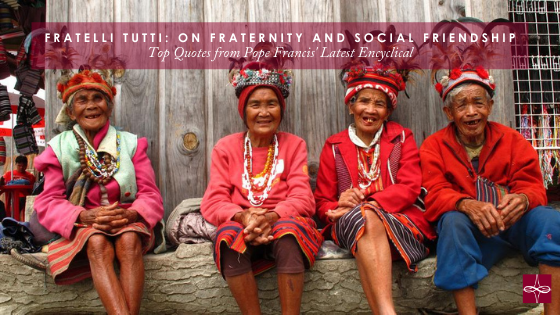

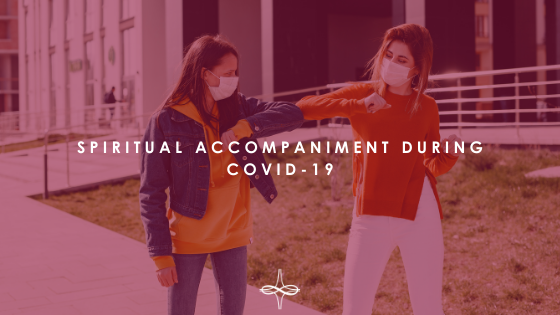
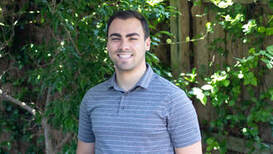


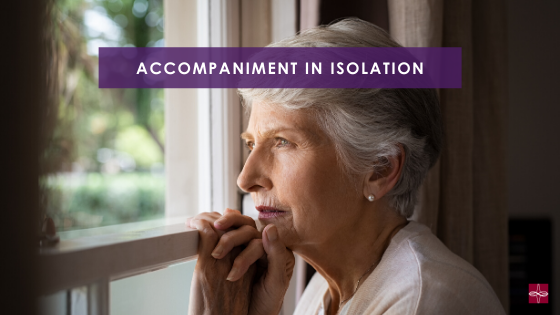
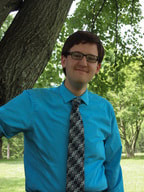
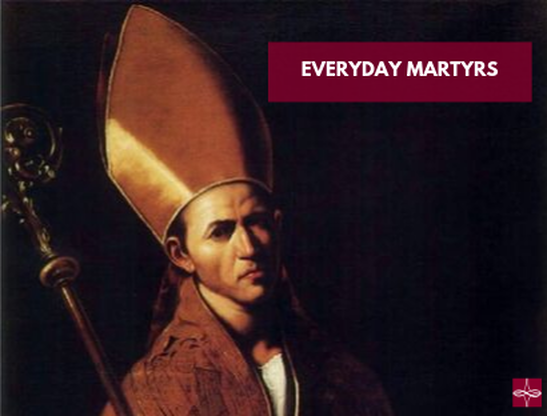

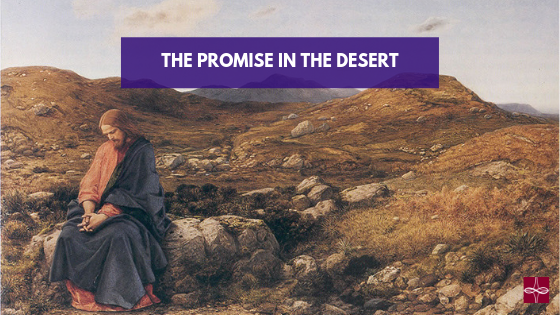

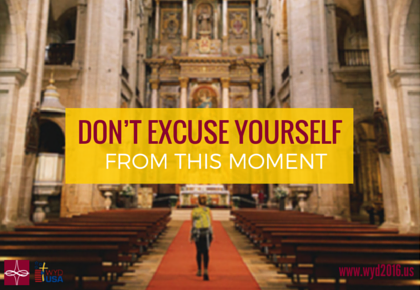
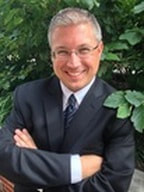
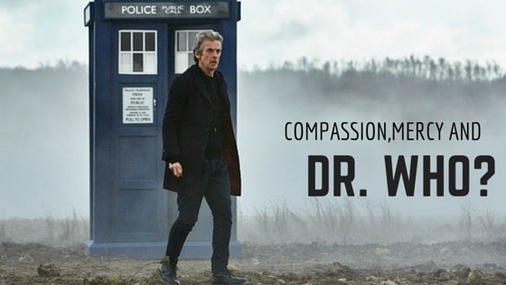

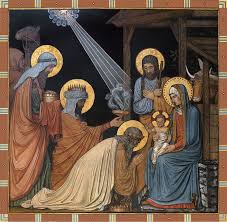
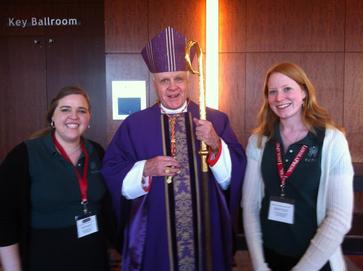
 RSS Feed
RSS Feed